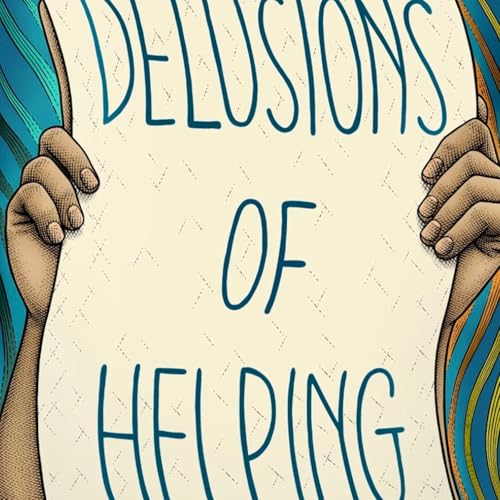
The Myth of Oversharing
Failed to add items
Sorry, we are unable to add the item because your shopping cart is already at capacity.
Add to basket failed.
Please try again later
Add to Wish List failed.
Please try again later
Remove from Wish List failed.
Please try again later
Follow podcast failed
Unfollow podcast failed
-
Narrated by:
-
By:
About this listen
- There’s no such thing as “too much” when it comes to lived experience — only the shame we attach to it.
- The White Lotus TV show example featuring Sam Rockwell's character delivering a deeply personal monologue about his sexual journey is presented as an illustration of authentic sharing that society often criticizes.
- Google search results about oversharing reveal widespread negative perceptions, with questions framing it as a symptom of mental illness, manipulation, or a red flag in relationships.
- Markl argues that people generally "under-share" important emotional journeys and authentic experiences, which prevents deeper human connections.
- Social media advice to "guard what you tell people" and "don't tell them your dreams" creates superficial relationships that fail to maximize human potential.
- The cultural tendency to dismiss or minimize others' trauma by saying "everyone has trauma" dishonors individual experiences and prevents genuine empathy.
- Professional environments often discourage authentic sharing of opinions or criticisms, forcing employees to remain silent even when they foresee problems with business decisions.
- Meaningful relationships, according to Markl, are those where people can open up deeply and create shared experiences through vulnerability.
- The practice of hiding personal shortcomings from others leads to self-suppression, creating internal tension that could be released through honest sharing.
- Markl advocates for encouraging people to share more about their real-life situations rather than labeling it as inappropriate "trauma dumping."
- The goal of human interactions should be reaching a depth where trauma can be shared alongside positive discussions about personal growth and transcendence.
- Life inevitably includes both positive and negative experiences, and repressing past traumas prevents the elevation of mindset regardless of circumstances.
- Cultural norms around communication should focus on meaningful life experiences rather than superficial elements like food, dance, and clothing.
- Markl concludes that sharing deep, real experiences and feelings allows for mutual learning and better advice-giving between people.
No reviews yet
In the spirit of reconciliation, Audible acknowledges the Traditional Custodians of country throughout Australia and their connections to land, sea and community. We pay our respect to their elders past and present and extend that respect to all Aboriginal and Torres Strait Islander peoples today.


